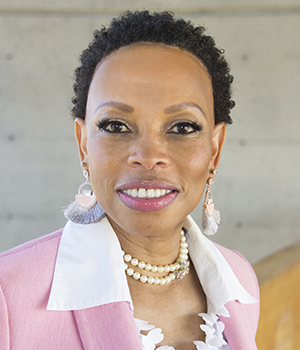
York University Black Canadian Studies (BCS) certificate program student Michelle Molubi has been recognized at the annual Humanities Education and Research Association (HERA) conference with the top undergraduate research paper honour.
For Molubi, a humanities student in her final year, the $1,000 prize from HERA represents the culmination of hard work and meaningful research within the Black Canadian Studies certificate. The award also highlights the continued success of students in the BCS certificate program.
Along with fellow BCS student Jellisa Ricketts – who also presented at this year’s HERA conference – and 2020 HERA conference undergraduate research paper award winner, Aysha Campbell, Molubi is also a DARE winner for summer 2021. All three certificate recipients will continue their studies at York this fall in the master’s program in humanities.
Inspired by Professor Ola Mohammed’s HUMA 3318 – Black Popular Culture course’s discussions on digital media and online activism, Molubi’s award-winning research paper, titled “Navigating Black Death Online” explores the attitudes and complicated perspectives that coexist in the digital space, as web users bear witness to forms of pain and suffering in Black communities. It questions how Black groups are challenged to participate on social media, while also carrying burdens attributed to the unjust atrocities they are forced to consume.
“I argue that simultaneously engaging with both Black life and Black death, refusing to minimize either, allows Black groups to live uncompromisingly rich lives while remaining in a state of inescapable grief,” Molubi said.
Molubi presented her paper as part of BCS coordinator and York University Associate Professor Andrea Davis’ virtual panel, Thinking Black Life Beyond Geographies of Black Death, which explored possibilities for Black life both through and beyond narratives of resistance.
“This paper argues that Black death will always be difficult to see, but for Black liberation, it must continue to be seen. Thus, comfort can be found in knowing that it is possible to simultaneously occupy multiple spaces. It is okay to feel scared, vulnerable and defeated when courageously standing on the frontlines of resistance – while also feeling joy and happiness, and cherishing small moments of peace.”
Molubi presented her paper as part of BCS coordinator and York University Associate Professor Andrea Davis’ virtual panel, Thinking Black Life Beyond Geographies of Black Death, which explored possibilities for Black life both through and beyond narratives of resistance.
With the 2021 HERA conference taking place exclusively online, the atmosphere was different from last year's in-person affair, but the event still created space for a thought-provoking presentation.
“The online format took away the stress of a live crowd, but I missed the engagement aspect. Still, I’m glad we were able to reach a large audience through the online platform,” Molubi said. “I’m grateful for this honour and I appreciate Dr. Davis and the HERA conference committee giving me the opportunity to present this work.”
The BCS certificate continues to garner well-deserved attention. Since launching in September 2018, the program has introduced diverse perspectives on the Black diaspora to the classroom. As demonstrated by this award, the curriculum has encouraged students to produce meaningful work that resonates well beyond York University.
“To have our Black Canadian Studies undergraduate panel recognized for the second consecutive year is an incredible honour. Our faculty are among the leaders in Black Studies and Black expressive cultures in the Americas. We know our students intimately and invest time in helping them develop, providing opportunities for their growth and success beyond the classroom,” Davis said.
"In proposing this panel, my goal wasn't to win the award. I wanted to create a larger platform for students to share their work, to introduce them to the wider culture of academic life, and prepare them for succes in graduate school. I am deeply appreciative of the space that HERA provides in supporting undergraduate research and encouraging a new generation of humanities scholars."

